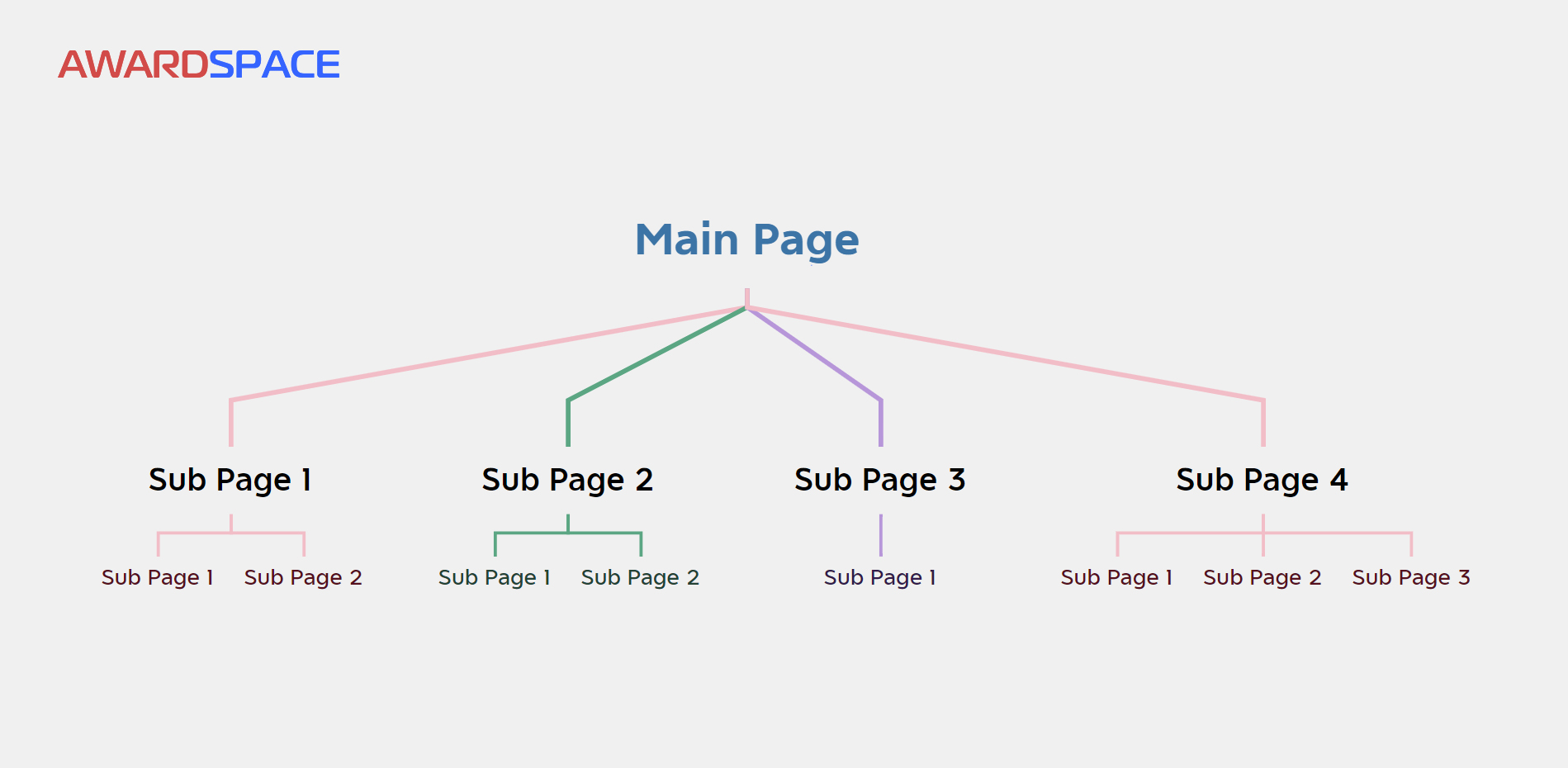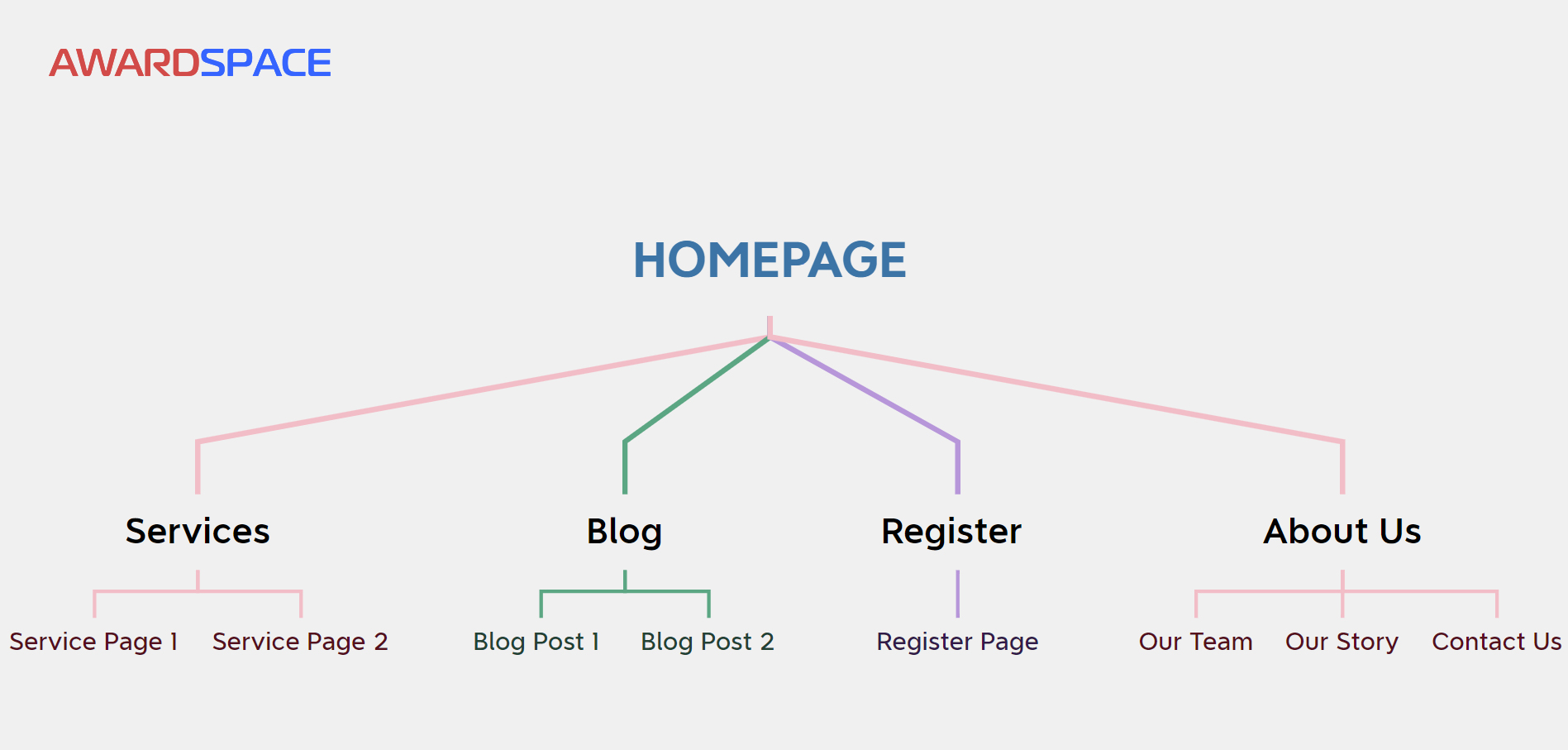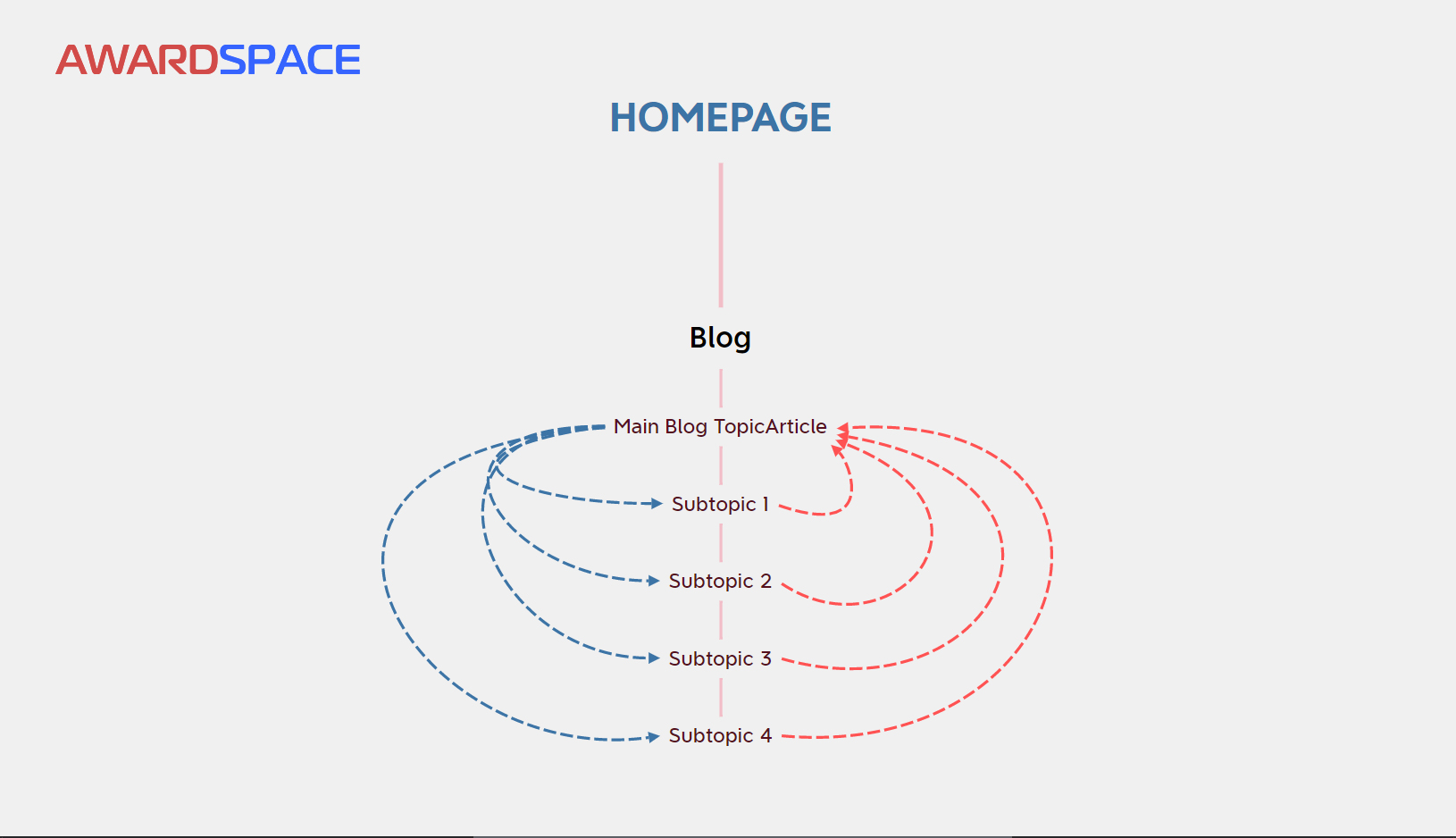SEO, or Search Engine Optimization, SEO optimization, or website optimization is a term that describes the process of improving your website’s visibility in search engines, so to generate more organic traffic.
If none of this makes sense to you, don’t worry, as we will explain each term in detail later in the article.
There are thousands of Google searches conducted each second and there are millions of people who search for information by using search engines. SEO can help you attract more of these people to your web pages and benefit from increased site traffic and improved website popularity.
In the following paragraphs, you will read everything regarding SEO and how to make your website more prominent on the web.
Table of contents:
What is SEO

To get into the nature of SEO, you should first understand three important terms – Search Engine, SERP, and Organic Traffic, and how are connected with each other:
- A search engine is a software platform that contains a vast amount of website data, called “an index”. Pieces of this data are showcased to users once they type in a query to the search engine. Once you type something in Google (make a query), the software platform searches data within these indexes and delivers results matching that client’s search query. The results are displayed on a special web page, called Search Engine Result Page (SERP). Popular search engines are Google, Bing, Yahoo, Yandex, and others.
- Search Engine Result Page (SERP). Usually, after you type in something in these search engines, a list of suggested web pages is displayed to you. The idea is you browse them and open the web page that fully resembles your query. This list of web pages, images, and other data is called a search engine result page – abbreviated as SERP. The content of such pages is determined by the query you type in Google or Bing.
The aim behind every SEO strategy is to make sure that a website is being displayed higher in SERPs, or, in other words, to improve the search visibility of a certain website, so more people visit it.
- Organic traffic is a term describing all site visitors that come to your website by following unpaid sources – a.k.a. clicking on some of the suggested websites listed on the result page after a query in Google, for example. Organic traffic has been an important metric since the dawn of the Internet. By adopting SEO practices, marketers, SEO specialists, and site owners aim to generate more organic traffic.
With time, site owners, marketers, and SEO experts have started putting more conscious efforts into analyzing their website performance and maximizing the number of site visitors coming via organic traffic, especially after the exponential rise of Internet visitors over the last decade.
As there are so many Internet users, Google, along with others, has devised a system that filters out useful web pages among the millions of websites and suggests them to users once a query is made.
This system relies on implying sets of different criteria that make sure each website known to Google or any other search engine, is of satisfactory quality, and it is worth suggesting to the asking client.
If you manage to meet these sets of criteria, Google will suggest your website to its users.
SEO (Search Engine Optimization) is the process of improving your website’s overall performance, ease of use, and quality of content, so Google, Bing, Yahoo, and other search engines find your website content useful and suggest it to Internet users.
How Does SEO Work

Imagine this scenario:
You have a personal blog and write about topics regarding web hosting. In this example, one of your articles is named “What is Web Hosting.”
A person becomes interested in web hosting. To know more about the topic, they type in Google “What is web hosting” and browse the suggested results. They see a part of your article’s text and media among the suggested results, and open your article you wrote explaining what web hosting is.
Now this user, among all others who have landed on your website the same way, has become a part of your organic traffic.
In more technicality, here’s what happened – a Google user has typed in the query “What is web hosting” in the search box. Then Google search engine immediately checks its vast data storage for matching results and returns a list of suggestions that might be the proper answer to the given query. These answers are sorted in a certain way – the most useful ones, according to the given search engine, are placed on top of the result page, and in lower positions are placed on pages that are considered less helpful.
This is how SEO works – you improve your website in such a way that a search engine starts to consider your site and content of high quality and once a search query matches terms that are included in your web pages, the Google, or other search engine suggests your pages as a satisfactory result for the search query input.
How Search Engines Work

Search engines’ main function is to suggest useful data to their users. Here’s how that happens.
In short, search engines search for new websites on the Internet and suggest them to Internet users, after they search for some information.
In detail, here’s how it works:
Each search engine expands its index database by using certain types of software programs, known as website crawlers, spiders, or bots. These crawlers constantly search the web for websites and once they stumble upon a new one, they start analyzing, a.k.a. “crawling” this website’s content, evaluate it in terms of quality metrics, store it in the indexes database, and finally showcase it (or do not) to search queries the search engine receives.
Bots also crawl already indexed websites and search for changes – once such are discovered, this website is evaluated once again, and depending on whether the bots consider it more reliable, or less, its position in SERPS might vary, if the search engine decides to include it at all.
Google, Bing, and Yahoo (among many others) are search engines that millions of users use every day. If you type “What is web hosting” in Google/Bing/Yahoo, or any other search engine, the system will bring back results in a SERP that it thinks are relevant to the “What is web hosting” query input.
Each search engine’s function is comprised of 3 main elements:
- Website Crawling.
- Search Engine Indexing.
- SERP Ranking.
What is Website Crawling
Google, Bing, Yahoo, and other search engines constantly search the web for new websites. This is made possible, thanks to website crawlers that find new and updated content.
Website crawlers usually discover and crawl websites in two ways:
- By finding links that point from an already indexed website to a new still not indexed site. Once website crawlers notice such a link, they follow it, land on the web page the link points to, begin crawling the new site’s structure, and content, and also analyze its ease of use, and performance.
- By manually submitting a file with all the website’s pages to the index database of a search engine. Such files are called sitemaps. Once a sitemap is uploaded and noticed by the search engine, bots are sent to crawl the unknown website.
What is Search Engine Indexing
Search engine Indexing is the process of organizing newly crawled websites and storing them in the search engine’s central database, known as an index.
During the indexing process, a search engine analyzes and sorts out which pages to which user queries to suggest.
Once the search engine stores the website in the index, it can start suggesting it in search results in SERPs (search engine ranking pages).
SERP (Search Engine Ranking Page)
The search engine ranking page, SERP, or simply ranking is the stage in which the search engine displays suggestions to a given query input.
These suggestions are ranked in a certain way – at the top of the page are placed the most relevant suggestions to the user query and in lower positions – results that might be helpful, but are not considered as relevant as the ones at the top of the SERP.
In a nutshell, all your SEO endeavors contribute to making a given search engine display your website content in a higher position, and, if possible, place it in the first position, as Internet users are more prone to opening the top SERP results and ignoring the rest.
Why is SEO Important

SEO is important, as it helps you build and expand your website’s online presence, traffic, and income sources.
In the majority of cases, users search for information online via search engines, and in most cases via Google. This means that the main way to generate organic traffic toward your pages is by optimizing your website in such a way that Google or any other search engine starts showing it in various search results.
About 40,000 searches are being conducted each second, according to Google, and about 1,2 trillion searches each year.
In order to benefit from these vast numbers and make your website more popular, you should focus on search engine optimization, as, by far, this is the best way of generating solid numbers of organic traffic.
Regardless of what type of website you are working on – a blog, portfolio, or enterprise website, it is always a good idea to focus on improving your SEO score, as it can greatly contribute to more paying customers and clients, enhanced brand awareness and overall better visibility of your online content.
Types of SEO

Optimizing your website can be done in three key SEO aspects: on-page SEO, off-page SEO, and technical SEO.
On-page SEO
On-page SEO revolves around improving your website’s structure, content, ease of use, and flawless performance, so it becomes easy for your site visitors and crawling bots to digest your content and navigate through your pages.
On-page SEO includes:
- Proper choice of a domain name
- SEO-friendly URL structure
- Using relevant keywords
- Optimized page titles
- Optimized page text
- Optimized images and other media files
- Optimized website navigation
Off-page SEO
Off-page SEO encompasses all activities that bring the attention of people and bots to your website. Working on off-page SEO means expanding the online presence of your web pages.
Off-page SEO activities include:
- Increasing the number of links to other quality websites that lead to your web pages
- Allow your website to be indexable by search engines
- Conducting PR campaigns, so more people get to know you and your website
- Working with influencers, so they promote your website.
Technical SEO
Technical SEO encompasses all settings on your website that make crawling and indexing of your pages faster and more efficient.
Technical SEO activities include:
- Making your website indexable
- Improving website structure
- Improving the internal linking system
- Optimizing website core code
- Focusing on mobile-friendliness
- Canonicalization
SEO Ranking Factors

When crawling, indexing, and ranking online content in SERPs, search engines apply certain criteria to distinguish between high-quality and low-quality websites.
This set of criteria is known as SEO ranking factors or website ranking factors.
To improve your SEO and website optimization, you should focus on meeting the requirements of these SEO ranking factors.
The idea is to meet more SEO ranking factors, so your web pages have better chances of appearing in higher positions in SERPs.
There are numerous website ranking factors and some are more important than others. In the following paragraphs, you will read about the most important ones that would ensure greater search visibility for your website:
- Domain name
- Website structure
- Website security
- Backlinks
- Page loading speed
- Relevant keywords
- URL structure
- Page body tex
- Page headings
- Website navigation
- Internal linking
Domain Name as an SEO Ranking Factor
When searching for a domain name for your website, from an SEO perspective, it should contain a keyword that is prominent in the topic your website is focused on.
If you are not sure how to proceed, then think of a popular word or phrase in the field your website will be focused on and use it as a domain name.
The idea is to make the crawling spiders instantly aware of what your website topic is about.
For example, if you launch a website that focuses on pizza recipes, it is advisable to include the word “pizza” in your domain name, and in this case, www.pizza.com would be the perfect choice.
Website Structure as an SEO Ranking Factor
When building your website, you should focus on a structure that is reliable and yet simple, so bots can understand it quickly enough and can use it to access more of your pages.
As a rule of thumb, the hierarchical structure is considered to be a great choice. This means that you create one main page, and all other pages become sub-pages of the main one.
In a practical example, the hierarchical structure might look like this:

You have your homepage and create several sub-pages branching out from it for each of the topics on your website – About Us, Products, Blog.
Then, you create new sub-pages that branch out from the first sub-pages: Contacts and Team pages branch out from About Us, Products and Services pages branch out from your Products page and the various blog posts branch out from the Blog page.
Now, the final result can look like this:

Such structure helps search engines understand the relationship between web pages and their content. The better and deeper they have the chance to understand your website structure and how your content is being distributed, the better chances your website has for higher SERP ranks.
Website Security as an SEO Ranking Factor
Search engines love secure and well-protected websites.
This is why, you should make sure your visitors and all website data are secure, so you have bigger chances of ranking higher in search result pages.
To make sure your website is a secure place, you should use an SSL certificate, virus, and firewall protection.
Further security measures can never be overestimated.
Backlinks as an SEO Ranking Factor
Backlinks are links on other websites that lead to your website.
Backlinks are one of the most important website ranking factors, as Google and other search engines consider such links as tokens of vote and therefore consider websites that receive backlinks important.
The logic behind such a notion is simple – if a website links to another website, then the latter should contain relevant and up-to-date content that is worth sharing.
In the eyes of search engines, this is more than enough to grant a website with more backlinks a kick in SERPs.
Backlinks are important for one more reason – bots use them to find new websites and crawl them.
So, in terms of search engine optimization, it is a good idea to find ways of receiving backlinks from other websites. However, not all backlinks are created equal, so you should also consider a few things before you start searching for backlink opportunities:
- Backlinks coming from well-established and popular websites are considered more important than backlinks coming from small and relatively new sites.
- Backlinks from websites that share content similar to your site’s content niche are considered more important than backlinks coming from websites with irrelevant to your content, regardless of how well-established they are.
This means, for example, that if your website focuses on hosting services, the backlink you receive from a website that also focuses on hosting content, or another relevant computer field, will be more important than the backlink coming from a site that promotes bio juices.
In short, to maximize the SEO effect, try to receive backlinks from websites that operate in your content and business niche and try to get the most links from well-established sites.
Page Loading Speed as an SEO Ranking Factor
Search engines, along with Internet users are used to low loading speeds. This means that when working on your website, you should make sure that it performs flawlessly and loads as fast as possible, otherwise visitors will revert to other websites, and crawling bots will rank your pages lower in SERPs, regardless of how good your content is.
As a rule of thumb, the loading speeds of your web pages should be no longer than 3 seconds – after that time visitors get frustrated and the chance to leave your website becomes exponentially bigger.
To reduce page loading speed, make sure you use a reliable hosting service, you have optimized your code structure and optimized all media files within your website.
Here’s more on the topic of site speed and why it is important:
Relevant Keywords as an SEO Ranking Factor
An essential ranking factor is the usage of relevant keywords within your website. Keyword, or a keyphrase is a fancy term for the query that visitors use in search engines to search the web for what concerns them.
For example, if a user types in Google “What is web hosting?”, the keyword used is “What is web hosting”, but also “web hosting” and maybe “hosting”. This means that when such a query is sent to Google/Bing/Yahoo, the search engine will look at its indexes for content that contains said keywords, rank them according to what it considers relevant, and then display the suggestions in a search engine result page.
The idea behind using keywords on your website is to find out what your potential site visitors would type in search engines to find what they look for and use the same queries within your content, so search engines have a greater chance of associating the given search query with your website and therefore display it to the users.
If you want to know more about keywords, then check our comprehensive article, explaining everything about keywords:
URL Structure as an SEO Ranking Factor
When building your website, you should have a look at the structure of all your URLs. In most cases, default URLs can contain strings of random symbols and numbers that make sense only for the website they point to and the server that hosts that website.
An example of such an ambiguous URL address might be:
www.examplewebsite.com/202342/435-UR-3943-AR/post123/
Such strings rarely make sense to search engine bots and site visitors and are considered as not a helpful website feature, so ranking in search results of websites with such URLs can likely be low.
This is why, you should edit the structure of your website URLs in such a way that it becomes clear to both site visitors and search engines where these URLs lead to.
In a practical example, a good URL structure would showcase where the link leads to and what exactly visitors and bots would find there:
www.examplewebsite.com/blog-section/web-hosting-terms/what-is-web-hosting/
Furthermore, to maximize the positive SEO impact of your website URLs, you should focus on adding keywords in them so the search engine associates your site content and all used keywords as a good suggestion to the given query.
Page Body Text as an SEO Ranking Factor
When adding text to your web pages, you should consider a few approaches that are SEO-friendly and can contribute to better-ranking positions.
The first important thing for search engines, and site visitors, is to publish unique and useful content at all times. This means that your text should be focused on the web page’s general topic and should be structured in such a way that it is easy for bots and site visitors to digest your content and instantly understand what it is about.
Another important thing is to include relevant keywords in your body texts, so the search engine more confidently identifies your website and content as the proper suggestion to user queries.
You should also try to make your text simple to digest by separating paragraphs, adding subheadings, and using numbered lists and bullets. Such an approach makes the text visually more appealing and far easier to read and understand – a perk that is cherished by search engines.
Page Headings as an SEO Ranking Factor
Similar to the body text, the heading should also be well-structured, informative, and short. When working on your headings make sure to add as much information in as few words as possible. This approach would ensure that bots understand quickly and easily.
Similar to the body text, make sure your headings are unique and contain keywords – by doing so you let bots get a deeper understanding of your website and therefore can rank it more frequently in SERPs.
Also, ensure that each web page’s main heading remains at the top and is the first text that bots would appear. This helps to understand better your content structure and distribution. Then, should you decide to add subheadings, make sure that H2 is placed below H1 and H3 below H2, so the structure remains intact.
Website Navigation as an SEO Ranking Factor
A simple-to-use and functional navigation can contribute to better website ranking.
Site navigation is simply the set of menus you place across your pages, so site visitors can browse all your content and reach all your web pages.
The idea is to make website navigation as effective as possible, so search engines consider your website helpful and easy to use. If they do, your website has a better chance of ranking higher in SERPs.
To make your site navigation useful and effective, make sure that all your web pages are accessible at all times and in all places.
Internal Links as an SEO Ranking Factor
Internal links can help you rank much higher in SERPs.
Internal links are links that lead from one place to another place on your website.
Such links are very important for 2 main reasons:
- They help spiders discover and crawl your website content.
- Internal links help spiders understand better and deeper your site content, what pages are about, and the logic behind your content distribution across your website.
To make sure you get the most out of internal linking, follow these tips:
-
-
-
- Make sure all your web pages are interlinked and each one links to all others. This approach blends very well with the idea of a hierarchical structure of your website, mentioned above. If you combine these two concepts, bots would first understand better your content and the logic behind its distribution across pages and sub-pages and then would greatly appreciate that there are easily accessible links that lead to everything else on your page.
-
-
- Create content pillars. The idea is simple – if you have a main topic and various sub-topics, then make sure to link them all together. For example, in your blog section, you might have one main topic and numerous sub-topics, all distributed on different web pages. To create a pillar, make sure that the main topic page links to all other sub-topic pages, related to the main one. At the same time, make sure that all sub-topic pages altogether link back to the main topic page. Let’s take the blog section of a website as an example. In this case, there’s a main blog post that delves into a single topic thoroughly. Also, there are three other posts that complement the main post with additional information about the same main topic. Now, to make a pillar, simply add links to your main post that lead to each other complementary post and from each complementary post back to the main one: This approach provides all your content pillar pages with internal backlinks therefore making it more appealing to Google and other search engines.

Conclusion

Search engine optimization is paramount for your website’s online presence and authority.
Knowing more about SEO can greatly increase the number of site visitors and paying customers, so make sure you delve deeper into the topic and follow our advice for optimal SEO impact.
By using the information in this article, you can improve your chances of making your website more popular and with a greater number of visitors, and also you can create a new stream of income, should you wish to monetize your website content.
Also check out:
- 9 Ways to Start Monetizing Your Website
- What are Keywords
- How to Optimize Images for Web (7 Key Tips)
- What Is Website Malware and How to Protect Your Site from It?
- Why Your Site Speed Matters and How to Measure It
- 6 Reasons Why Social Media Matters for Your Website
- How to Set Up Google Analytics 4
- What Are Web Analytics and Why Do They Matter?
- How to Navigate Google Analytics 4
- What are the Most Important Website Metrics to Track in Google Analytics 4
- What Is PageRank? A Quick History Lesson
- How to Get Started with Affiliate Marketing
